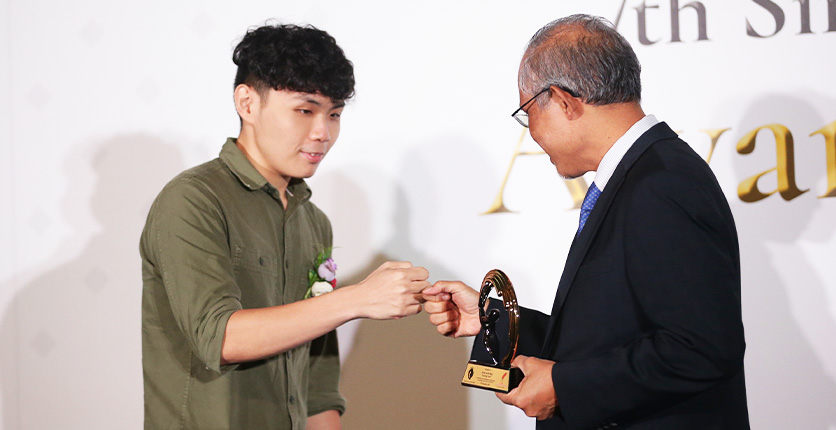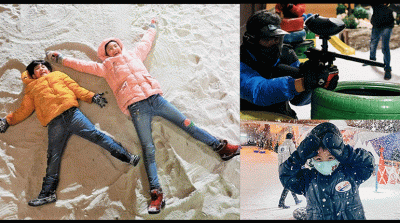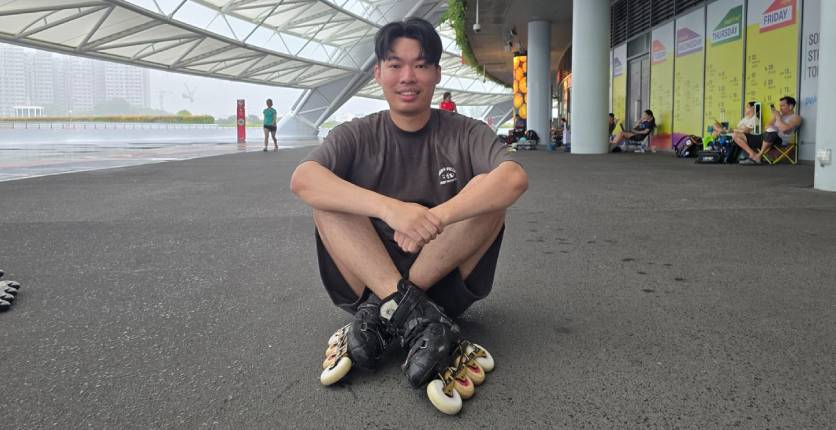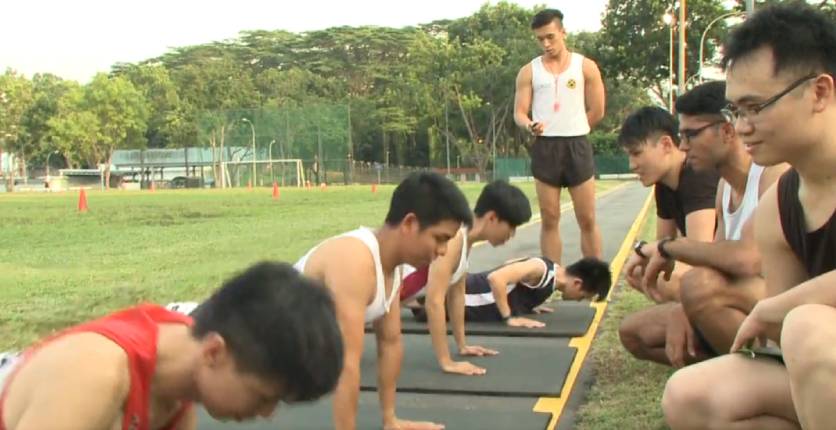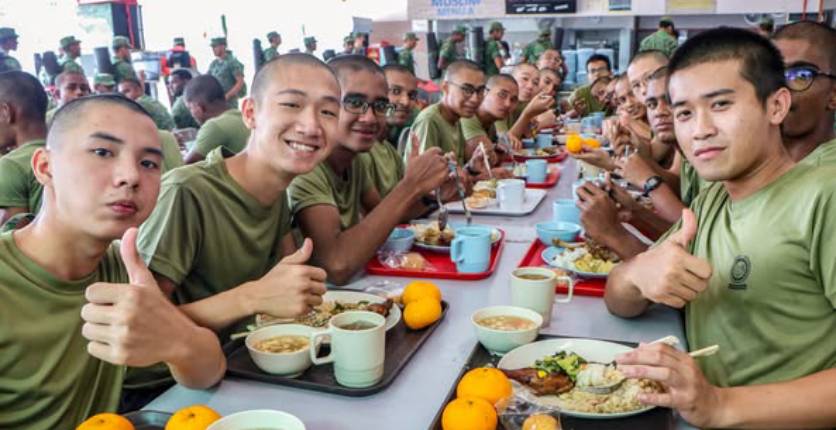Derek Lim is familiar with the pains of being the proverbial wallflower. As a reserved adolescent, he was bullied by schoolmates for not fitting in, which caused him to further withdraw from people.
That changed when he jolted himself out of his comfort zone to embark on a slew of volunteering stints that led him to charity outreach organisation Homeless Hearts of Singapore. Started by media technologist Abraham Yeo in 2014, the informal group of volunteers scours Singapore’s streets for rough sleepers, offering them no-strings attached food, drink and friendship.
Aside from connecting these individuals with the relevant social agencies to apply for housing and financial aid, the group also works with the likes of Mount Alvernia Hospital and Institute of Mental Health to dispense subsidised treatment and short-term accommodation respectively.
The group’s mission of reintegrating the homeless into society particularly resonates with Lim, who can clearly relate to being an outsider. For the past seven years, he has committed his time to the charity, where he now leads a team of volunteers. In November 2020, the then 25-year-old won the Singapore Silent Heroes award in the Inspiring Youth category. The annual awards are conferred by Civilians Association of Singapore, to unsung champions of social good.
NSMan caught up with Lim to find out how he goes about helping a misunderstood community.
How did you get into volunteering? Why did you choose to work with the homeless, in particular?
I started volunteering after my O-levels, as I was quite an introvert then and did not feel confident enough to take on a part-time job. I wanted to do something meaningful, and felt that volunteering would provide me with good exposure to a whole new world outside of school. I volunteered in a variety of roles, from preparing meals for the underprivileged, to cleaning the homes of the elderly and distributing food to low-income families. In 2014, I discovered Homeless Hearts of Singapore through a Facebook post, and was intrigued. It’s different from your usual volunteering role, as it requires you to work at night, befriending people who are sleeping rough. Seeing a unique opportunity to meet others, I asked to join the group.
How has your experience with being bullied shaped you as a volunteer?
In a way, my past experiences have helped me develop a deeper sense of empathy. More importantly, however, I feel that volunteering has challenged me to overcome my fear of speaking with people; you need to interact with others while on the job. So volunteering has actually helped me to grow as a person over the years.

How exactly do you go about helping the homeless in Singapore?
As the head of volunteers, I coordinate our outreach activities, vet and train our volunteers, as well as look out for their safety and well-being. We operate on the notion that homelessness is not a societal problem that should be solved, but concerns people who need to be loved. I would say that homelessness is mostly caused by a lack of friendship, rather than resources. Hence, we befriend our homeless beneficiaries at their resting spots to see how we can help them out. While we don’t provide cash handouts, we refer those who need financial assistance to social service offices, and connect those seeking shelter to family service centres. We also help them with simple online applications for housing. I work on the ground almost every night, and regularly check in on our homeless friends via WhatsApp messages or phone calls.
What have been your most challenging moments as a volunteer at Homeless Hearts of Singapore?
The most difficult part is when homeless friends are not receptive to us. While it is understandable that they may be very reserved or even hostile towards us, it can be discouraging when someone you have built a friendship with over a period of time disappears or grows averse to our help. I always remind myself, though, that these people are adults who are responsible for their own lives. Besides, people come and go, and we may eventually meet again. I personally cherish the memories and friendships formed, and constantly tell myself it is okay if they refuse our help, as I am just there as a friend and volunteer. This prevents me from getting burnt out.
What about your most rewarding moments as a volunteer?
We had befriended this uncle who was suffering from health issues and worried about not having a place to stay while waiting for his Built-to-Order (BTO) flat. During that time, we happened to be working with a church to organise a Chinese New Year celebration for the homeless, which was attended by a minister. He extended help to this uncle, who eventually successfully secured an interim rental flat as well as a job – he worked really hard at two jobs. I still remember the day I accompanied him to collect the keys to his rental flat that he would co-occupy with a friend; it brought me great joy to witness their happiness. Incidentally, we attended the same uncle’s void deck wedding in 2019, and it affirmed my belief in the importance of befriending the homeless to gain their trust and ultimately, empower them.

You seem to have made lasting friendships as a volunteer. What have you gained from them?
We gain a lot from the life stories and wisdom our homeless friends share with us. Like any friendship, there are ups and downs where they may be either happy or upset with us, but I’ve made meaningful friendships. Importantly, I’ve learnt that homeless individuals have their own goals and aspirations just like the rest of us, and also seek true happiness and things like companionship. We should not see them as occupying a lower level in our society, but equals as human beings.
What are the biggest misconceptions about homeless people in Singapore?
That they are poor, lazy and not safe to be around. Many of them actually have jobs, are looking for work or are unable to, whether it is because they have health issues or lack a stable environment to rest. Some homeless individuals receive help from the government, so they are not exactly destitute. Most in the homeless community are really friendly, and even express their concern for us. Of course, they may be a bit reserved at the start, but it is all about building rapport with them. Lastly, not everyone who sleeps rough is homeless. Some are doing it out of convenience, as their homes are far from their workplaces. Others may not be able to stay in their homes due to family issues or conflict with their housemates.
How has Covid-19 impacted the homeless community in Singapore?
They were impacted by both the restrictions and economic fallback. The Circuit Breaker period was quite tough on them, as they were unable to find spots to sit and have their meals. Some even had to resort to resting in buses so they would not get caught by the authorities. By comparison, things are much better now, and they can rest at void decks. The border closures meant that individuals who typically commute between Singapore and neighbouring countries such as Malaysia and Indonesia on a daily basis were left stranded here without accommodation. Others lost their jobs or suffered pay cuts. As a result, we’ve noticed a 30 to 40 per cent rise in homeless people, from pre-pandemic times.
What should the general public do when encountering homeless people?
Don’t disturb them or call the authorities when you see a homeless person sleeping outside, as you may only cause them more issues. We need to respect their space. Never take photos or videos of them without their consent and post them on social media. We sometimes see other activists and groups splashing the faces and locations of homeless friends across social media, which can be upsetting and certainly does not help them to become more resilient. If anything, it will only make them more wary of receiving help from volunteers with good intentions.
How has your time spent serving NS shaped you as a person and helped you handle various challenges?
My camp mates were generally supportive and friendly, and I enjoyed a lot of happy moments during NS, especially with the knowledge that I could trust them. This helped me to focus on my volunteering, which in turn, motivated me to do well in the army.
Let us in on your plans for the future.
I would like to continue volunteering with Homeless Hearts of Singapore and other groups, as well as inspire more volunteers to do so. I’d love to build more friendships with homeless friends. I plan to complete my degree in social work and become a qualified social worker, like my girlfriend. I’m currently working as a social work associate at New Hope Community Services, and will stay at this charity for now. Hopefully, I will also be able to settle down with my girlfriend.
If you know of a homeless person who has expressed they need help, call the ComCare hotline at 1800-222-0000 or email msf_peersoffice@msf.gov.sg so relevant agencies can reach out and help.
Watch this video to see what Homeless Hearts of Singapore does:
What do you think we can do to help the homeless? Share your thoughts with us at magnsman@sph.com.sg!
Photos: Singapore Press Holdings
